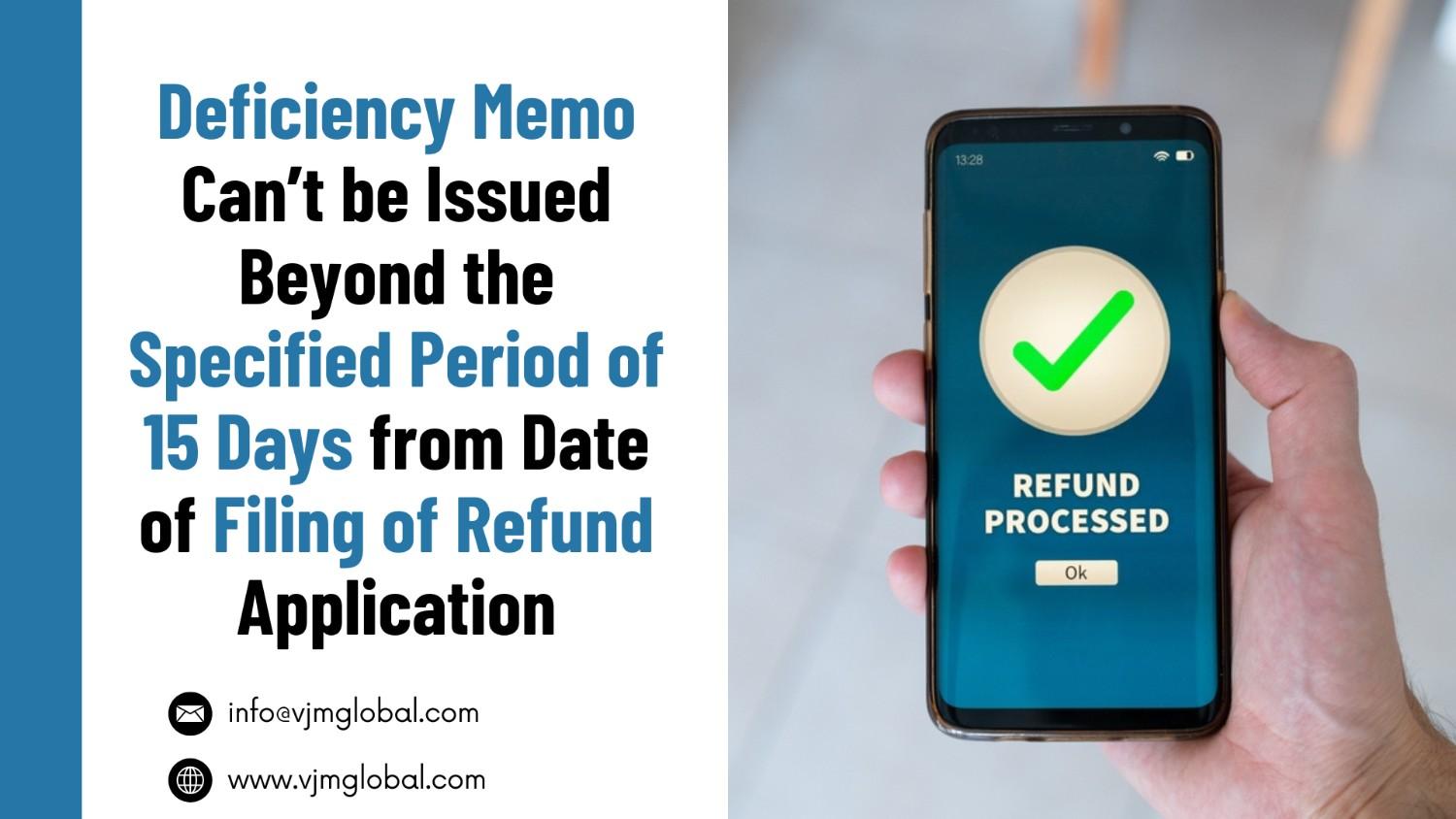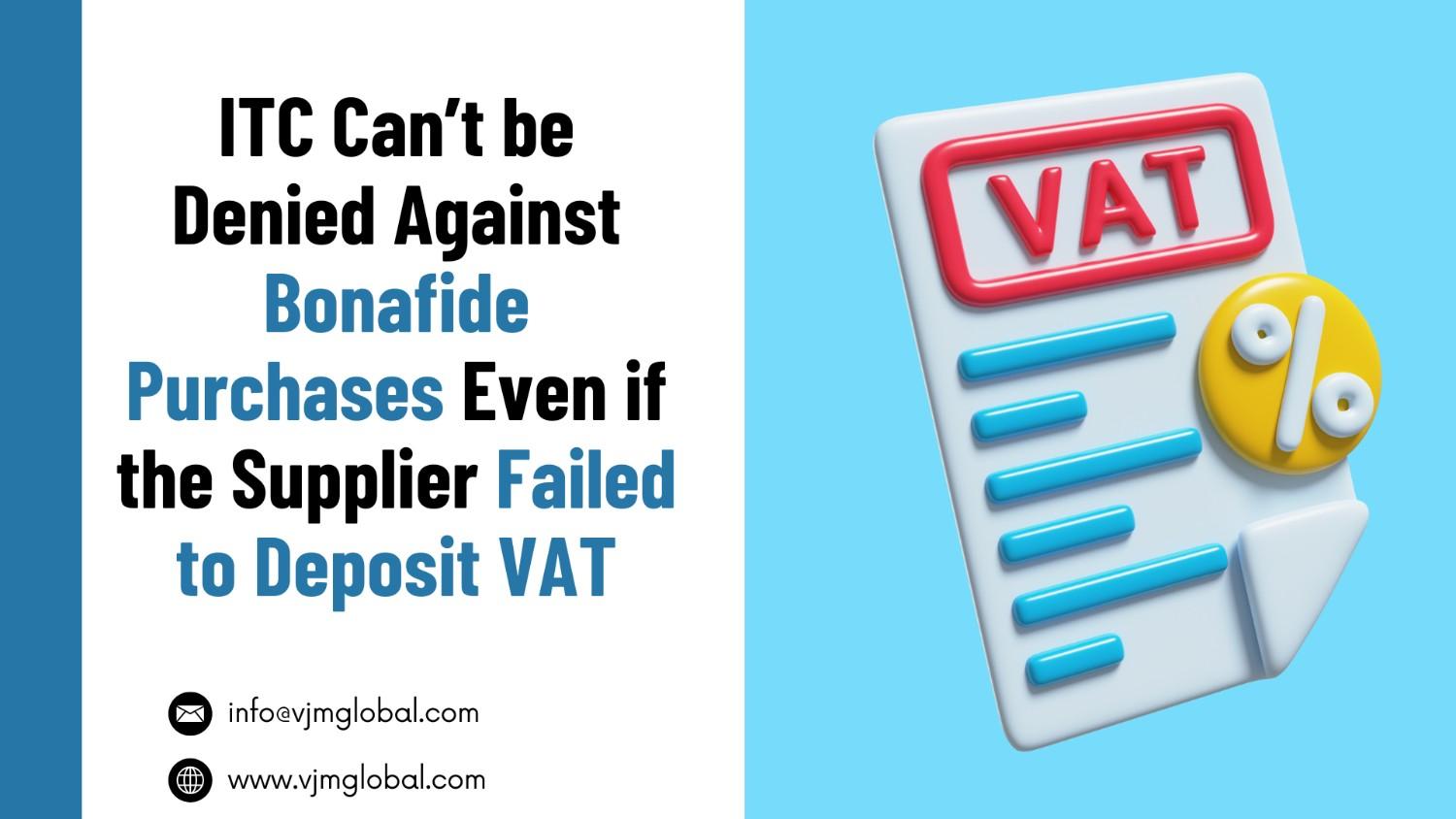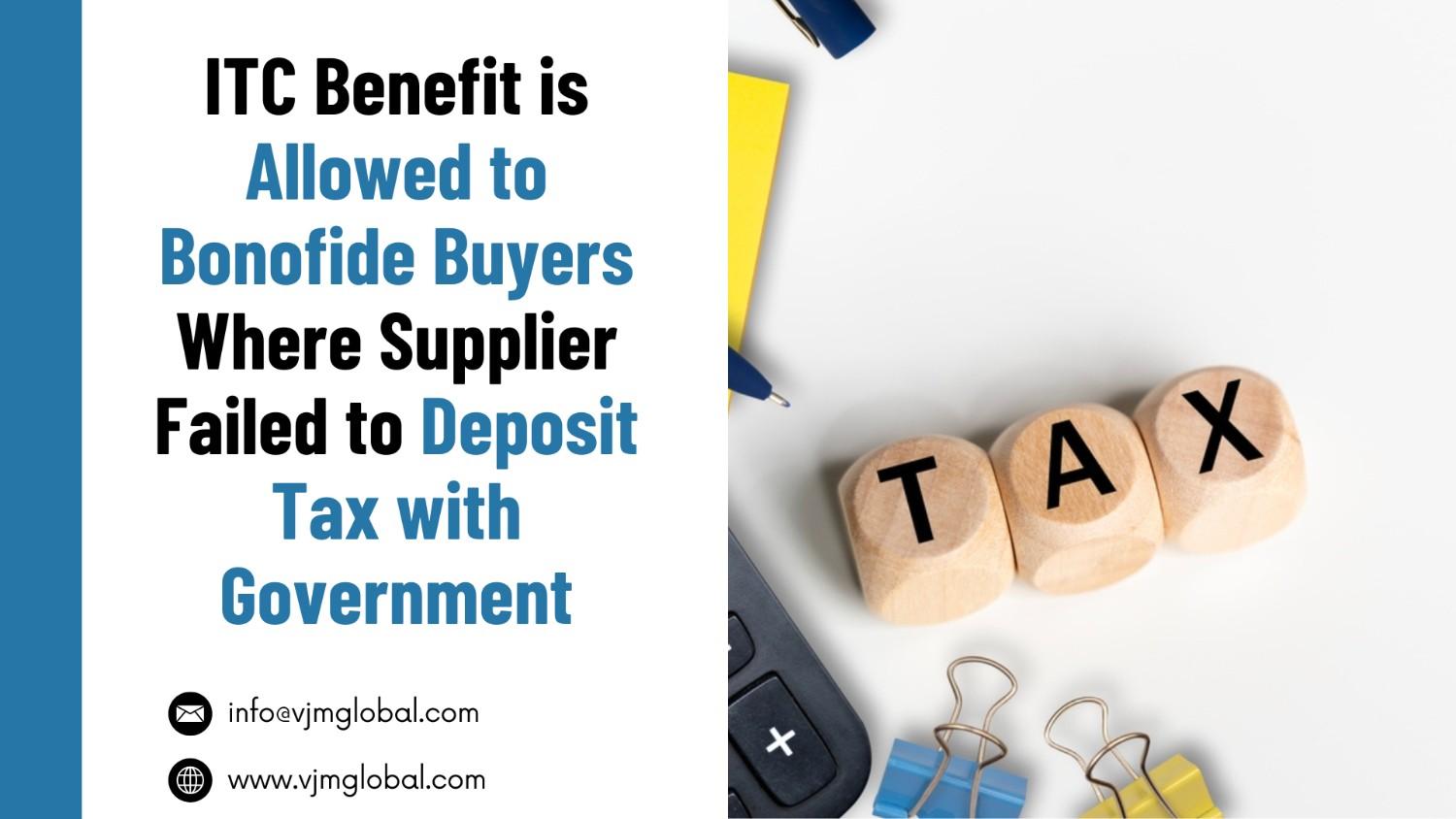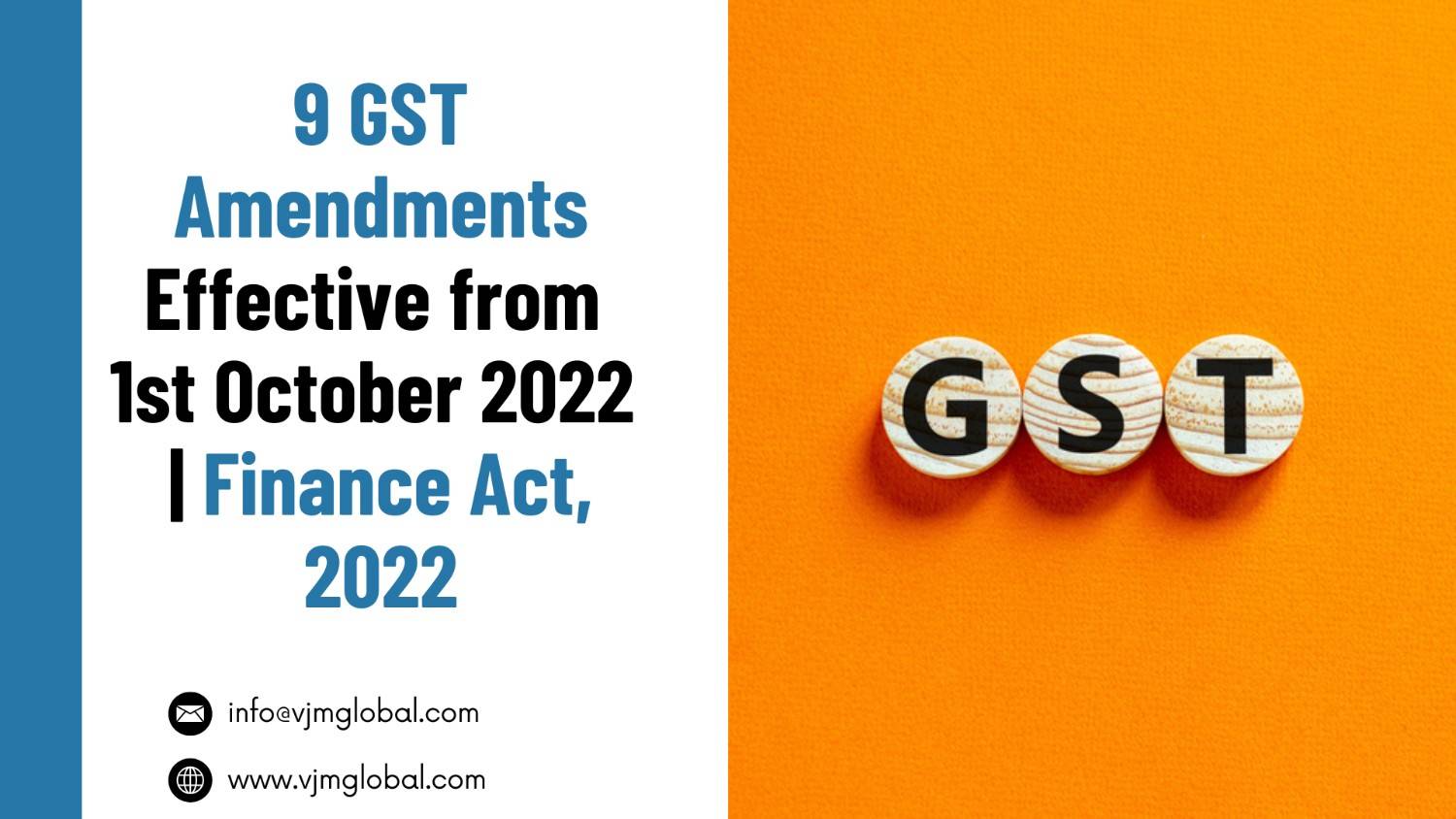Finance Act, 2022 introduced various amendments under GST Law. However, most of the amendments were not implemented till date. Now, with effect from 1st October 2022, the following amendments are made applicable.
1. Due date of claiming ITC extended and Only eligible ITC can be claimed- Amendment in Section 16 (Section 100 of the Finance Act, 2022)
1.1 Extended due date of claiming ITC
- As per Section 16(4), ITC with respect to an invoice can be claimed up to earlier of the following dates:
- Due date of filing of return of September month of the following year; or
- Date of filing of Annual return of year to which invoice pertains
- However, through Finance Act, 2022, such date has been extended till 30th November of the following year.
- Therefore, ITC of invoices pertaining to FY 2022-23 can be claimed up to 30th November or the actual date of filing of the Annual return, whichever is earlier.
- Taxpayers are aware that ITC can be claimed for the invoices appearing in GSTR-2B. Therefore, if any invoice has not been uploaded by the supplier in GSTR-1 or has not been amended in GSTR-1 if required, then the due date of filing such amendment is the due date of GSTR-1 of October month of the following year.
- E.g.,
- The invoice dated 10th March 2023 has not been uploaded by the supplier in his GSTR-1.
- Now the supplier uploads such an invoice in GSTR-1 of October 2022. However, he files such GSTR-1 on 15th November 2022, i.e., after the due date.
- Now, such ITC shall not appear in GSTR-2B of October Month of the recipient. Rather, the same will appear in GSTR-2B of November. Therefore, recipients shall not be able to avail ITC on such invoice as GSTR-3B of November month will be filed after 30th November 2022.
1.2 Restriction on claiming ITC:
- Section 16(2) of the CGST Act specifies conditions subject to which ITC can be claimed such as unlying goods or services must have been received.
- Now a new condition has been inserted that such ITC should not be restricted under Section 38.
- Section 38 provides various inward supplies on which the recipient shall not be entitled to claim ITC.
2. Changes in provisions of GST registration cancellation- Section 29 of CGST Act
- In the case of composition Dealer, earlier GST registration stands canceled if the GST return has not been filed for 3 consecutive tax periods. However, GST registration shall be canceled if the return for a financial year is not filed beyond three months from the due date of furnishing the said return.
- Accordingly, GST registration shall stand canceled if Form GSTR-4 (due date is April 25th of the following FY) if not filed beyond 3 months from the 25th April.
- In the case of dealers other than composition dealers, GST registration is canceled if GST returns are not filed for a continuous period of six months. However, now a period of default will be prescribed.
3. Extended due date of filing Credit Notes- Section 34 of CGST Act
- Section 34 deals with Credit notes and debit notes.
- As per Section 34(2) of the CGST Act, a supplier who issues a credit note shall furnish the details of such credit note in the GST return of the tax period during which such credit note is issued but not later than September following the end of the financial year in which such supply was made, or the date of furnishing of the relevant annual return, whichever is earlier.
- However, since the time limit of availing ITC has been extended till November of the following year, therefore, the due date of filing the credit note has been extended till November of the following year.
4. Extended time limit for filing amendment in GSTR-1- Section 37 of CGST Act
- The time limit of availing ITC has been extended till November of the following year. Therefore, the department has extended the time limit of filing rectification of error or omission in GSTR-1 till earlier of the following dates:
- 30th November of the following year. (Earlier it was 30th September); or
- Date of filing of annual return.
5. More stringent ITC provisions- Substitution of Section 38 of CGST Act (Section 104 of the Finance Act, 2022)
a. Earlier Section 38
- Section 38 was framed according to the GST Model initially planned to implement, i.e., the recipient shall take action, i.e., acceptance or modification or deletion, on every invoice appearing in their inward supply report, i.e., GSTR-2A/2B.
- However, this two-way communication model was never implemented and therefore provisions of Section 38 become redundant.
b. Substituted Section 38
- Now, Finance Act, 2022 has substituted Section 38-Communication of details of inward supplies and input tax credit. The new section contains the following provisions:
- Sub-Section (1): Details of outward supply furnished by the supplier shall be provided to the recipient through an auto-generated report. This report is already implemented on the GST portal in forms GSTR-2A and GSTR-2B.
- Sub-Section (2): ITC auto-populating in inward supply report shall be divided into the following 2 parts namely:
- details of inward supplies in respect of which ITC is available to the recipient, i.e., eligible ITC.
- details of supplies in respect of which such credit cannot be availed, whether wholly or partly, i.e., Ineligible ITC.
- Following supplies shall be marked as ineligible:
- Supplies made by a supplier who has obtained new GST registration up to such period as may be prescribed.
- Supplies by a registered person who has defaulted in payment of GST for a specified period of time. This entry covers those suppliers who have filed their GSTR-1 by the specified due date but failed to file GSTR-3B.
- Supplies by a registered person whose output tax payable as per GSTR-1 exceeds the output tax paid by him in GSTR-3B by such limit as may be prescribed
- Supplies by suppliers who have availed ITC in GSTR-3B in excess of eligible ITC.
- The supplier has defaulted in discharging his tax liability as per Section 49(12). As per newly inserted Section 49(12) of the CGST Act, the Government may specify the such maximum proportion of output tax liability that may be discharged through the electronic credit ledger by a registered person or a class of registered persons. Therefore, liability in excess of the specified limit is required to be paid in cash.
- Click here to read the Complete decoding of Section 38.
5. Changes in due dates of non-resident taxable person- Section 39 of CGST Act
- A non-resident taxable person is required to file a GST return on a monthly basis in form GSTR-5 by the 20th of the following month.
- However, such a due date has been reduced till the 13th of the following month.
6. Deletion of redundant Sections
- Section 42, 43 & 43A omitted to ineffective the provision related to GSTR 2 & 3.
7. Late filing fee on GSTR-8
- The late fee shall attract on late filing of GSTR-8 by Rs. 100 per day. Maximum late fees: 10,000/-.
8. Transfer of cash balance between GSTIN under the same PAN
- It happens in many cases that the balance stands in the Electronic cash ledger of one state and the GST liability of another state is paid in cash.
- This practice causes unnecessary blockage of working capital. However, till now no window was available for the transfer of funds from one GSTIN to another GSTIN.
- As recommended by the GST Council, a registered person may transfer a balance lying in the electronic credit ledger of one GSTIN to another GSTIN with the same PAN.
9. Interest on ITC wrongly availed and utilized- Section 50 of CGST Act
- Where the input tax credit has been wrongly availed and utilized, the registered person shall pay interest on such input tax credit wrongly availed and utilized, at such rate not exceeding 24%. as may be notified by the Government, on the recommendations of the Council, and the interest shall be calculated, in such manner as may be prescribed."
- Only on utilization of wrongly availed ITC – interest shall be applicable @ 24%.













